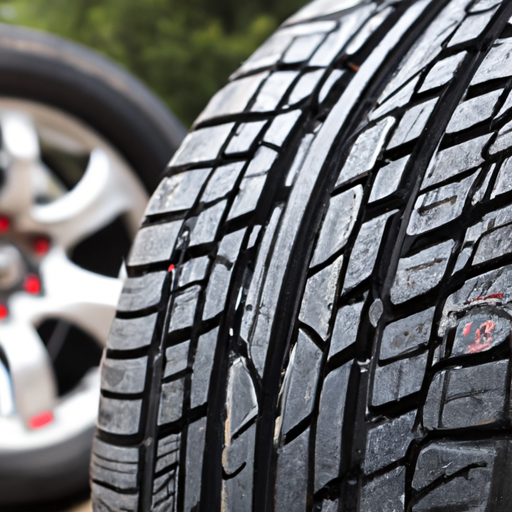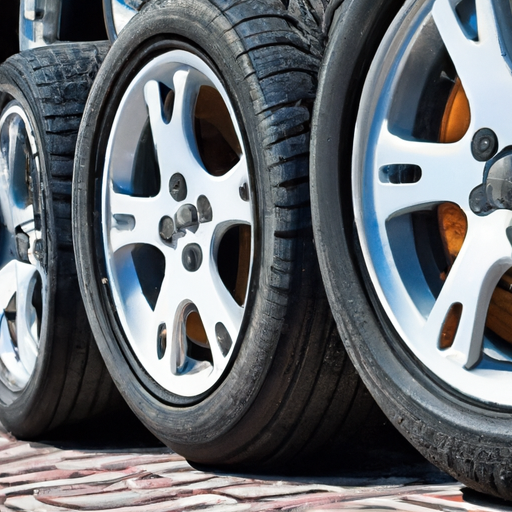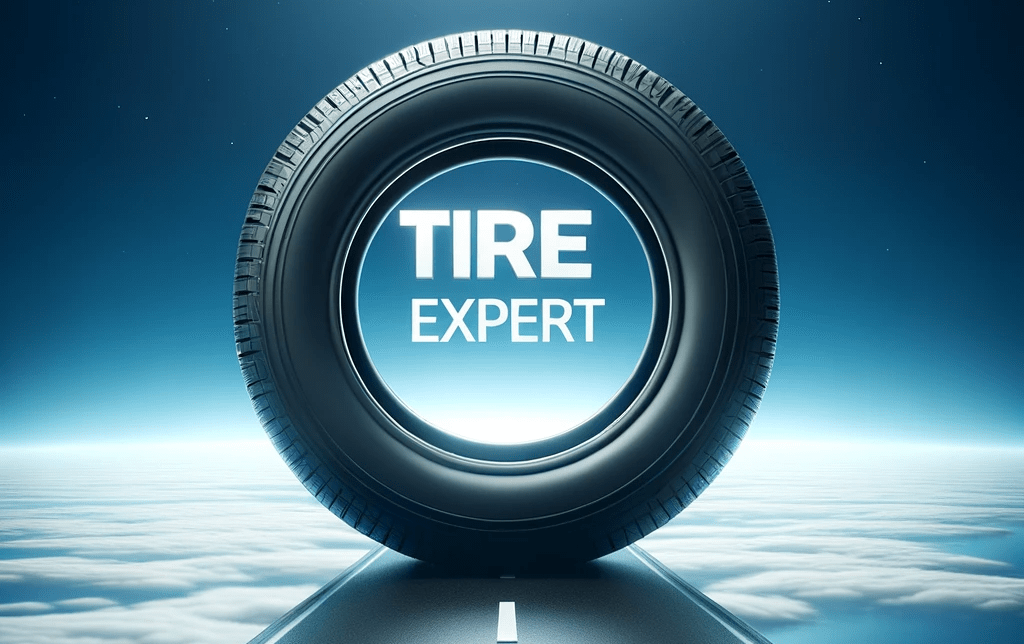You might think that summer tires are only useful for driving in hot weather, but did you know there are actually several common misconceptions about them? From assuming they provide better traction on wet roads to believing they are only suitable for sports cars, many people have preconceived notions about summer tires that may not be entirely accurate. In this article, we will debunk some of these misconceptions and shed light on the true benefits and limitations of summer tires. So, prepare to have your beliefs challenged and discover the truth about these essential automotive accessories.
Misconception 1: Summer Tires Are Only for Hot Weather
Subheading 1: Summer tires are not just for hot climates
Contrary to popular belief, summer tires are not solely designed for regions with scorching hot weather. While they certainly excel in warmer environments, their benefits extend beyond hot climates. Summer tires are engineered to perform optimally in temperatures above 45°F (7°C). This means that even if you live in an area with mild summers, you can still benefit from the enhanced performance and safety features that summer tires provide.
Subheading 2: Summer tires perform better in rain compared to all-season tires
Another misconception is that summer tires are ineffective in wet conditions. In reality, summer tires often outperform all-season tires when it comes to handling and traction on wet roads. Summer tires are designed with tread patterns and compounds that enhance water dispersion, reducing the risk of hydroplaning. Their specialized rubber compounds maintain flexibility in wet conditions, ensuring improved grip and shorter braking distances.
Subheading 3: Summer tires are less effective in snowy and icy conditions
While summer tires offer excellent performance in warm weather and wet conditions, they are not designed for snowy or icy roads. The rubber compounds used in summer tires harden in cold temperatures, resulting in reduced traction and handling abilities. In snowy or icy conditions, summer tires lack the necessary grip and traction to ensure safe driving. It is crucial to switch to winter tires for optimal performance in severe winter weather.
Misconception 2: Summer Tires Wear Out Faster
Subheading 1: Summer tires can have longer tread life compared to all-season tires
Contrary to the misconception that summer tires wear out quickly, they can actually have longer tread life compared to all-season tires. High-quality summer tires, when properly maintained and driven with a balanced driving style, can provide exceptional tread longevity. The specialized rubber compounds and tread designs used in summer tires are often engineered to minimize wear, ensuring that they last for a significant mileage before needing replacement.
Subheading 2: Driving style and maintenance affect tire wear
The rate at which tires wear is influenced by various factors, including driving style and maintenance practices. Aggressive driving habits, such as hard acceleration and braking, can accelerate tire wear regardless of the tire type. Additionally, neglecting regular tire maintenance, such as not maintaining proper tire pressure or failing to rotate the tires regularly, can lead to uneven wear and decreased lifespan. By adopting a smooth driving style and adhering to recommended maintenance practices, you can maximize the lifespan of your summer tires.
Subheading 3: Proper storage can prolong the lifespan of summer tires
Proper storage during the off-season is crucial for extending the lifespan of summer tires. When not in use, it is recommended to store summer tires in a cool, dry place away from direct sunlight and extreme temperatures. Tires should be stored away from ozone-producing equipment and chemicals, as these can cause premature tire aging. Additionally, ensuring that the tires are clean and dry before storage, and periodically rotating them, can help prevent flat spots and maintain their overall condition.

Misconception 3: Summer Tires Are More Expensive
Subheading 1: Summer tires often have a higher initial cost than all-season tires
One common misconception is that summer tires are more expensive than all-season tires. While it is true that summer tires generally have a higher initial cost, it is essential to consider the long-term benefits they offer. Summer tires are engineered for optimal performance in warm weather, providing excellent grip, responsiveness, and cornering abilities. The superior performance and enhanced safety features justify the higher cost for those seeking a thrilling driving experience.
Subheading 2: Summer tires can provide better fuel efficiency, saving money in the long run
In addition to their performance benefits, summer tires can also contribute to better fuel efficiency, saving you money in the long run. Summer tires often have lower rolling resistance than all-season tires, requiring less energy to move the vehicle forward. This reduced resistance translates into improved fuel efficiency, potentially saving you on fuel costs over time. For those concerned about maximizing fuel economy, summer tires can be a worthwhile investment.
Subheading 3: Availability of options and discounts affect the overall cost
The cost of summer tires can also be influenced by the availability of options and discounts offered by tire manufacturers and retailers. While premium summer tire models may have a higher price tag, there are often more affordable options available. Additionally, seasonal promotions, clearance sales, and discounts can make summer tires more accessible and cost-effective. By comparing prices, exploring different options, and taking advantage of discounts, you can find summer tires that suit your budget without compromising on quality.
Misconception 4: Summer Tires Cannot Handle Wet Road Conditions
Subheading 1: Summer tires are designed with tread patterns and compounds for wet traction
Contrary to the belief that summer tires struggle in wet road conditions, they are actually designed with specialized tread patterns and compounds that enhance wet traction. The tread patterns of summer tires often feature wide circumferential grooves and intricate siping, which efficiently channel water away from the tire’s contact patch. This improves grip and reduces the risk of hydroplaning, ensuring enhanced safety and performance on wet roads.
Subheading 2: Aquaplaning can occur with any type of tire, including summer tires
It is important to note that aquaplaning, or hydroplaning, can occur with any type of tire, including summer tires. Aquaplaning happens when a layer of water builds up between the tires and the road, causing reduced traction and control. Factors such as vehicle speed, tire tread depth, and the presence of water on the road surface contribute to aquaplaning. While summer tires are designed to minimize the risk of hydroplaning, it is crucial to maintain a safe speed and drive cautiously in wet conditions regardless of the tire type.
Subheading 3: Proper inflation and regular tire maintenance improve wet performance
To ensure optimal wet performance, proper tire maintenance is essential regardless of the tire type. Maintaining proper tire inflation levels is crucial as underinflated or overinflated tires can negatively impact wet traction. Additionally, regularly inspecting the tread depth and overall condition of the tires can help identify any potential issues that may affect wet performance. By practicing regular tire maintenance and adhering to safe driving practices in wet conditions, you can maximize the wet performance capabilities of your summer tires.

Misconception 5: All-Season Tires Can Substitute Summer Tires
Subheading 1: All-season tires are compromises for different weather conditions
While all-season tires offer versatility for varying weather conditions, they are compromises compared to summer tires that are specifically engineered for warm weather performance. All-season tires aim to provide decent performance in both dry and wet conditions, making them suitable for moderate weather conditions. However, they typically lack the superior performance characteristics and grip levels that summer tires offer in hot and dry conditions.
Subheading 2: Summer tires provide superior performance in dry and wet road conditions
Summer tires deliver superior performance in both dry and wet road conditions due to their specialized design features. The rubber compounds used in summer tires maintain flexibility in hot weather, ensuring excellent grip and responsiveness. Additionally, the tread patterns of summer tires are optimized for efficient water dispersion, providing enhanced wet traction. These characteristics make summer tires the ideal choice for those seeking the highest levels of performance and safety in warm weather conditions.
Subheading 3: Summer tires offer better handling and responsiveness compared to all-season tires
One of the main differentiators between summer tires and all-season tires is their handling and responsiveness. Summer tires are specifically designed to provide exceptional cornering abilities, precise steering response, and enhanced traction for better control. This is due to features such as stiffer sidewalls, advanced tread compounds, and optimized tread patterns that maximize grip and reduce the risk of sidewall flexing. If you prioritize superior handling and responsiveness, summer tires are the optimal choice.
Misconception 6: Summer Tires Cannot Be Used Year-Round
Subheading 1: Summer tires are designed to provide optimal performance in warm weather
Summer tires are strategically engineered to deliver optimal performance in warm weather conditions, making them less suitable for year-round use. The rubber compounds used in summer tires are formulated to maintain flexibility in higher temperatures, ensuring excellent grip and responsiveness. Their unique tread patterns and design elements maximize traction on dry roads. However, in colder temperatures, summer tires tend to harden, resulting in reduced traction, compromised handling, and longer braking distances.
Subheading 2: Winter conditions can significantly impact the performance of summer tires
Winter conditions, such as snow, ice, and freezing temperatures, significantly impact the performance of summer tires. As the temperature drops, the rubber compounds in summer tires harden, making them less pliable and reducing their ability to grip the road surface effectively. This leads to compromised traction, handling, and braking performance, posing a safety risk in winter driving conditions. It is essential to switch to winter tires when temperatures consistently approach freezing or below.
Subheading 3: Using summer tires in colder temperatures can lead to reduced traction and handling
Using summer tires in colder temperatures can have adverse effects on traction and handling. When temperatures drop, summer tires lose their flexibility and become less effective at gripping the road. This can result in reduced traction when accelerating, compromised stability when cornering, and longer braking distances. In icy or snowy conditions, the lack of traction provided by summer tires poses an even greater risk for accidents and loss of control. Opting for winter tires during colder months is crucial for maintaining optimal safety and performance.

Misconception 7: Winter Tires Are the Only Option for Snow
Subheading 1: Winter tires are specifically designed for severe cold and snowy conditions
Winter tires, also known as snow tires, are specifically designed to provide superior performance in severe cold and snowy conditions. They feature specialized rubber compounds that maintain flexibility even in freezing temperatures, ensuring optimal traction and grip on snow and ice. Winter tires have tread patterns with deeper and wider grooves, as well as additional sipes, which enhance their ability to bite into snow and expel it for improved traction.
Subheading 2: Summer tires are not suitable for driving in heavy snow and icy conditions
Contrary to popular belief, summer tires are not suitable for driving in heavy snow and icy conditions. The rubber compounds used in summer tires harden in cold temperatures, resulting in reduced traction and compromised safety. While summer tires may have excellent performance characteristics in warm weather, they lack the specific design features necessary for snow and ice traction. Opting for winter tires during severe winter weather ensures optimal safety and performance on snowy and icy roads.
Subheading 3: All-season tires can provide limited snow traction, but winter tires offer superior performance in extreme winter weather
Although all-season tires offer a compromise for different weather conditions, they may provide limited snow traction. Some all-season tires have the Three Peak Mountain Snowflake (3PMSF) symbol, indicating their ability to provide better traction in snow compared to standard all-season tires. However, all-season tires cannot match the superior performance offered by winter tires in extreme winter weather. Winter tires are specifically designed to excel in snowy and icy conditions, providing enhanced safety and control.
Misconception 8: Summer Tires Are Noisy
Subheading 1: Noise levels can vary between different tire models, regardless of type
Contrary to the misconception that summer tires are inherently noisy, noise levels can vary between different tire models, irrespective of type. While it is true that some high-performance summer tires may produce more road noise due to their specialized tread patterns and stiffer construction, this is not universally applicable to all summer tires. Tire manufacturers put significant efforts into tire design and technology to reduce noise levels, providing options with quieter performance.
Subheading 2: Factors such as tread design and road surface influence tire noise
Various factors influence tire noise levels, including tread design and road surface conditions. Tread patterns with aggressive block patterns or wide grooves can generate more noise as they interact with the road surface. Additionally, certain road surfaces, such as coarse asphalt, can contribute to increased tire noise. It is important to consider these factors when selecting summer tires and to choose models known for their quiet performance if noise reduction is a priority for you.
Subheading 3: Some summer tires are engineered for reduced noise and improved comfort
Tire manufacturers understand the importance of comfort and strive to develop summer tires that provide a quieter and more comfortable driving experience. Many summer tire models incorporate specific design features aimed at reducing noise levels while maintaining excellent performance characteristics. These features may include noise-optimized tread patterns, advanced rubber compounds, and technologies that reduce vibration and road noise. By researching the various options available and consulting with tire experts, you can find summer tires that offer a quiet and comfortable driving experience.

Misconception 9: Summer Tires Are Difficult to Find
Subheading 1: Availability of summer tires depends on the region and demand
The availability of summer tires heavily depends on the region and the demand for them. In areas with a predominantly warm climate and a higher market demand for summer tires, they are generally readily available. However, in regions with milder summers or where all-season tires are more commonly used, the variety and availability of summer tires may be limited. It is advisable to check with local tire retailers or online platforms to determine the availability of summer tires in your specific location.
Subheading 2: Many tire manufacturers offer a wide range of summer tire options
Despite the potential regional variations, many tire manufacturers offer a wide range of summer tire options. This allows consumers to find the right summer tire that suits their specific vehicle, driving style, and performance needs. Global tire brands often distribute their products worldwide, ensuring that consumers in various regions have access to a diverse selection of summer tires. By exploring different tire manufacturers and their product lines, you can find the summer tire that meets your requirements.
Subheading 3: Online platforms and tire retailers usually stock summer tires
In the digital age, accessing summer tires has become easier than ever. Online platforms and tire retailers usually stock a wide variety of summer tires from different manufacturers. These platforms allow you to compare prices, read customer reviews, and make an informed decision based on your specific requirements. Additionally, online platforms often offer convenient delivery options, allowing you to have the summer tires of your choice delivered to your doorstep. Checking online platforms and contacting local tire retailers can help you find the summer tires you need.
Misconception 10: Summer Tires Are Less Comfortable
Subheading 1: Comfort levels can vary among different tire models, regardless of type
Comfort levels are not exclusively determined by the type of tire but rather vary among different tire models. Regardless of whether they are summer, all-season, or winter tires, specific tire models may offer varying degrees of comfort. Tire manufacturers invest in research and development to create tires with optimized tread and sidewall designs that enhance comfort. By selecting tires known for their comfortable performance and consulting with tire experts, you can find summer tires that provide an enjoyable and smooth driving experience.
Subheading 2: Summer tires with optimized tread and sidewall designs can provide enhanced comfort
Summer tires, like any other tire type, come in various models with different design features. Some summer tire models are engineered with optimized tread patterns and sidewall designs aimed at improving comfort. These design elements help absorb road irregularities and minimize vibrations, resulting in a smoother and more comfortable driving experience. When choosing summer tires, it is essential to consider models known for their comfort-focused design features.
Subheading 3: Proper tire inflation and regular maintenance contribute to a comfortable driving experience
In addition to selecting summer tires designed for comfort, proper tire inflation and regular maintenance practices also contribute to a comfortable driving experience. Underinflated or overinflated tires can negatively affect ride comfort, as they may cause uneven tire wear and compromise handling. Regularly checking and maintaining the recommended tire pressure, along with adhering to proper tire maintenance practices, such as tire rotation and alignment, can significantly impact the overall comfort levels provided by your summer tires.
In conclusion, there are several common misconceptions about summer tires that need to be dispelled. Summer tires are not solely designed for hot climates and can perform well in a range of temperatures. They offer better traction in wet conditions and can have longer tread life compared to all-season tires when driven and maintained properly. While they may have a higher initial cost, summer tires can provide better fuel efficiency in the long run. Contrary to popular belief, summer tires are designed to handle wet road conditions but are not suitable for snowy and icy conditions. All-season tires cannot fully substitute summer tires due to the superior performance and handling they offer in dry and wet road conditions. Summer tires are not suitable for year-round use, as they are designed for warm weather and can compromise safety and performance in cold temperatures. Winter tires are specifically designed for severe winter weather, and all-season tires offer limited snow traction compared to winter tires. The noise levels and comfort of summer tires can vary depending on the tire model, and proper tire inflation and maintenance practices contribute to comfort levels. While availability may vary depending on the region and demand, many tire manufacturers offer a wide range of summer tire options that can be found through online platforms and tire retailers. By addressing these misconceptions and understanding the specific characteristics and limitations of summer tires, you can make informed decisions when it comes to your tire choices.


